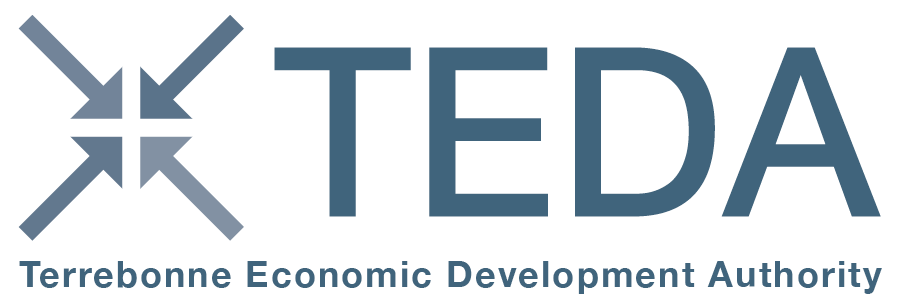Ochsner says its recent decision to raise its lowest wage from $8.10 to $12 per hour on Jan. 20 is based on its recent growth and wanting to “make a meaningful impact on a broad employee population.”
What remains to be seen is how other businesses in the economy will respond in the increasing competition for lower-wage workers.
Ochsner’s announced increase follows a 2017 human resources assessment that led to recommendations on programs and changes to “improve the overall financial well-being of our employees,” said Tracy Shiro, Ochsner’s senior vice president for human resources.
“Although Ochsner was already well above the current minimum wage, we wanted to do more. People are our most important asset. All jobs across the system — no matter how big or small — play a role in patient care and it is important to recognize that,” Shiro said.
Among more than 1,200 part- and full-time employees statewide to earn more next year are medical assistants, environmental service aides, patient care technicians and patient escorts. Among its sites, the company operates Ochsner St. Anne Hospital in Raceland and Leonard J. Chabert Medical Center in Houma.
The healthcare industry and its hospitals and clinics depend on a large pool of people to operate efficiently, said LSU economist James Richardson.
“Obviously, they felt that $12 was good number for them in terms of recruiting and maintaining people in those jobs that are very critical in a hospital setting, because hospitals are very labor dominated,” he said.
But what Richardson describes as “an internal decision” by Louisiana’s largest private employer could add wage pressure on companies and businesses in other service-oriented industries, such as hospitality and leisure, as competition and compensation for lower-wage workers has increased.
“The big, interesting part of it is that because they are such a big employer, particularly in the New Orleans area, it will seep over and have an impact on other industries. It will probably make hotels reconsider a little bit, and restaurants and maybe retail places. It will perhaps nudge them to ask themselves whether they are going to be competitive,” Richardson said.
The main benefit to Ochsner will be in retaining lower-wage workers, a problem facing large and small businesses across the economy, said Walter Lane, a healthcare economist at the University of New Orleans.
“These workers can work at any company. The problem is holding on to them. This should reduce some turnover,” Lane said.
In the last couple of years, several hospital systems across the country have announced similar wage floor increases. And Lane thinks Ochsner views itself as not just in competition locally, but nationally as well.
“They want to be one of the big guys. They are still far from that in terms of revenue, but I think when they see other hospital systems do it, that may be some small pressure on them,” Lane said, adding that Ochsner has been “very successful” and that he believes it genuinely wanted to share that with its employees.
Still, the current economic environment and expectations for that environment are always primary factors in any business decision, economists say.
Ochsner’s move comes amid historically low unemployment nationwide and a flattening labor force participation rate, which refers to the total number of people employed or in search of a job.
While Louisiana’s 5 percent unemployment rate is among the highest in the nation, labor economists consider it low by historical standards. And the state’s labor force participation rate has consistently trailed the national rate, which stood at 62.9 percent in November.
The participation rate is important to overall economic productivity, and since peaking in early 2000 has declined primarily due to an aging population. But other factors include more young adults in school and more people wanting to be stay-at-home parents, researchers say.
The unemployment rate for less-skilled and less-educated workers has also fallen significantly.
The national jobless rate for workers 25 years old or older without a high school diploma dropped from 7.7 percent in November 2016 to 5.4 percent in November 2018, while the rate dropped from 4.7 percent to 3.3 percent for workers with a high school diploma but no college over the same period.
The tight labor market has placed pressure on companies and businesses to raise wages. But, generally speaking, they have been reluctant to do so.
The Federal Reserve Bank of Atlanta’s summary of regional economic activity, known as the beige book, said in September that its business contacts were continuing to see hiring challenges, “especially for low-skilled and hourly positions.” But firms were focused on other ways to recruit, retain and reward workers — offering flexible schedules, bonuses, profit-sharing and other incentive pay programs that could be discontinued in a downturn.
“Once you make a wage increase, it is hard to pull that back,” Richardson said. “Maybe you can reduce the number of people you employ, but you can’t really pull that wage back down very easily at all. So, I think companies are very cautious in doing this. We have low unemployment now, but how long is it going to last?”
The recent uptick in wages has also been attributed to states and cities setting minimum wage increases and some large private companies raising pay for their lowest paid workers, adding to inflationary pressures.
In 2018, 18 states increased their minimum wages under previously enacted legislation or ballot initiatives and now 29 states and the District of Columbia have minimum wages higher than the federal rate.
And recent announcements by large national firms such as Amazon increasing starting wages at the lower end of the pay scale “have created broad pressure to raise pay ... across the region,” particularly among hospitality and retail employers, according to the Atlanta Fed’s December beige book.
Yet despite the pressure, industries vary in their capacity to raise wages. While Louisiana’s healthcare and hospitality industries are relatively strong, “other industries in the state are not quite as robust as they are in other parts of the country,” Richardson said.
And the fact that workers typically do not relocate for lower-wage jobs could also dampen any ripple effect from Ochsner’s decision. “If you are merely trying to increase jobs at a hotel, you are going to have a hard time trying to move people in from outside the area at that lower wage,” Richardson said.
Louisiana has not adopted a state minimum wage. It follows the $7.25 federal minimum set in 2009. Many businesses pay more to their lowest wage workers. The median hourly wage in the state is $15.62.
About 3.6 percent of hourly workers in Louisiana -- 39,000 workers, including exempt, tipped employees -- earned an hourly wage at or below the federal minimum in 2017, according to the U.S. Department of Labor.
By Michael Joe / New Orleans City Business









